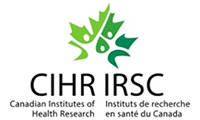
When Dan Shire’s heart stopped beating in 2016, it led to a race against time to save his life.
Shire’s wife heard him struggling to breathe in the middle of the night. Then she ran to the phone to call 911, started CPR, and waited minute-by-painful-minute for first responders to show up.
Once paramedics arrived at the couple’s Pickering, Ont., home, they used a defibrillator on Shire four times, then tried a potent medication in an attempt to restart his heart.
That drug, epinephrine — also called adrenalin — is given intravenously every three to five minutes, up to an average of six milligrams. It stimulates blood flow by squeezing the blood vessels, which can, in some cases, help get someone’s heart beating again.
But researchers worry there’s a dangerous ripple effect: When you save someone’s heart, you can hurt their brain. Studies suggest higher doses of epinephrine might actually cause neurological damage.
In Shire’s case, he survived his episode of cardiac arrest and now leads a largely normal life. But the 67-year-old does have cognitive impacts such as short-term memory issues and some difficulty with complex tasks like driving. He’s not sure how much of that is from his heart stopping — cutting off oxygen to his brain for the better part of 16 minutes — or the dose of epinephrine he was given.
Read the full CBC article here.
Related Posts
Adrenaline can save a heart but hurt the brain. Canadian research aims to find best dose for a potent drug
When Dan Shire's heart stopped beating in 2016, it led to a race against time to...
CBC Profile: Study aims to find best adrenaline dose for cardiac arrest patients
https://www.youtube.com/watch?v=MsF5c59Ld0Q&t=5s The drug epinephrine...




